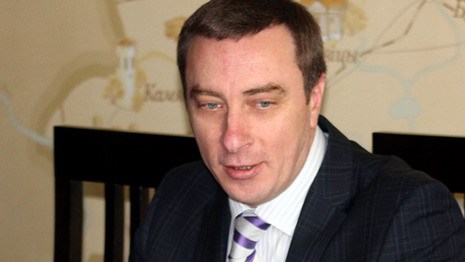
Russia: Belarus’s Economic Lifeline and Cultural Magnet
Publication: Eurasia Daily Monitor Volume: 9 Issue: 190
By:

To Belarus, Russia is not just the “meaningful other.” It provides an existential lifeline to Belarus as a de facto custodian of Belarus’s socio-economic model and a cultural magnet of sorts. It was only after Russia dropped the price of natural gas sold to Belarus to $165 per 1,000 cubic meters and provided a critical loan (officially through the Eurasian Economic Community) that Belarus’s financial crisis of 2011 was alleviated. By different accounts, the discounts on oil and gas and preferential treatment of some Belarusian exports to Russia are worth from 10 to 15 percent of Belarus’s GDP. Due to the cancellation of export duties on Russian oil and the ensuing steep growth in Belarus’s export of solvents and lubricants, from January to July 2012, Belarus enjoyed a net excess of exports over imports for the first time in seven years. After Russia launched an investigation motivated by suspicion that Belarus re-exports Russia’s crude oil disguised as solvents and thus dodges paying duties to the Russian treasury, Belarus’s exports suddenly sagged. So in August 2012, imports ($3.952 billion) again exceeded exports ($3.543 billion) (https://gtk.gov.by/ru/stats/itogi_vnesh_torgovli2012/yanv_avgust12).
Nevertheless, independent experts probed by the Belarusian Service of Radio Liberty did not overdramatize the situation. According to Dmitry Kruk from the Minsk-based IPM Research Center, the reversal of the positive balance of international trade is temporary and is part of a political and business cycle, while the current economic situation is far healthier than that on the eve of the 2011 crisis. According to Alexei Pikulik, the director of the Minsk-based Belarusian Institute for Strategic Studies, which is funded by Western sponsors, the Belarusian economic model, emphasizing a high level of social subsidies and low income disparity, still has some potential if only because there are still plenty of lucrative assets that Belarus can sell. Also, the export of solvents was not just a Belarusian affair—certain Russian businesses profited from it as well, and there exist many more mutually beneficial schemes of that kind that can still be used. At the same time, however, a lasting trend whereby popular support for President Alyaksandr Lukashenka closely correlates with the growth of personal income has been terminated. Since the beginning of 2012, the US dollar value of the average monthly wage in Belarus increased by 38 percent, but no commensurate growth in Mr. Lukashenka’s rating has been recorded. Yet, according to Yevgenii Preigerman from the Minsk-based Liberal Club, no street protests are to be expected in the foreseeable future (https://www.svaboda.org/content/article/24732827.html).
Some insights on the aforementioned Belarusian economic model can be gained from an interview Nikolay Snopkov, Belarus’s minister of economics, gave to the independent news portal Tut.by. According to Snopkov, all economic models in today’s world are mixed and contain a dose of central planning. Minister Snopkov pays special attention to Singapore’s development over the course of 30 years and sees it as essentially centrally planned. Moreover, he believes that Belarus’s present-day economic model takes its guidance from the seminal work of Alfred Mueller-Armack (1901–1978) who in 1946 coined the term “social market system” and who made critical contributions to Germany’s economic model while working as an aid to Ludwig Erhard, Germany’s minister of economics and subsequently Federal Chancellor (1963–1966). Snopkov believes production costs in Belarus can still be significantly lowered. He also announced the introduction of incentives for attracting foreign direct investment to Belarus. Specifically, bonuses will be paid to regional administrators amounting to 0.1 percent of the total FDI allocated to their regions. Finally, throughout the first seven months of 2012, there were seven percent more registered small and medium-sized businesses in Belarus than during the first seven months of 2011 (https://news.tut.by/economics/313827.html).
According to Andrei Souzdaltsev, a Russian economist expelled from Belarus in 2006, the opinion that Russia is keenly interested in buying up Belarus’s enterprises is a figment of the Belarusian opposition’s imagination. Nor is Russia particularly interested in Belarus’s exports of dairy products, sugar or meat. Belarus receives huge Russian subsidies for purely geopolitical reasons. In particular, Moscow wants to contain the further extension of the EU’s sphere of influence, and this desire intensified after Russia’s 2008 war with Georgia. That the West gained a foothold in the South Caucasus implied to Moscow that Russia was “squeezed out to the northeastern corner of Eurasia and would eventually be left one-one-one with China.” Furthermore, Moscow decided that the western margin of Russia’s own hinterland should to be given special care. As a result, previous rhetoric about Russia switching to market principles in its relations with Belarus (2006–2010) abruptly gave way to even larger subsidies to Belarus than those administered prior to 2006. According to Souzdaltsev, Russia is interested in the retention of Belarus’s sovereignty as “a buffer between Moscow and NATO” (https://naviny.by/rubrics/politic/2012/10/14/ic_articles_112_179559/).
Aside from providing an economic lifeline to Belarus, Russia appears to be its cultural magnet. According to Yuri Drakakhrust, a Belarusian analyst based in Prague, a striking difference between the recent parliamentary elections in Belarus and in Georgia is due to the fact that these countries obtained their independence in a different way. “Georgia fought for its independence. We remember sapper shovels [with which the police cracked down on the 1989 rally in Tbilisi] and thousands demonstrating in the streets. As for Belarus, it did not do a thing to win independence. And so we are now paying for the fact that independence and democracy were bestowed on Belarusians as freebies.” According to Drakakhrust, Belarus’s so-called political backwardness goes back to cultural and mental closeness between Belarus and its great eastern neighbor. It is as if there is a shared political culture of the three East Slavic countries—Belarus, Ukraine and Russia—that Drakakhrust terms a shared “political matrix.” He notes, “Whenever they [Belarus, Ukraine or Russia] try to create some democratic structure, they end up with some form of authoritarianism… There are no good and bad peoples. But in some countries, no prerequisites have matured for consolidated democracy” (https://www.svobodanews.ru/content/transcript/24734628.html). To Drakakhrust, this situation is due to a deficiency of grassroots self-organization. If a ditch formed in front of a house, Russians, Ukrainians and Belarusians would fail to level it collectively; rather they would appeal to the authorities to fix it. Building a national party from the ground up is much like leveling a ditch. Both efforts require mechanisms of self-organization that are available in some national communities but are missing elsewhere. As a result, whereas in Georgia there are several centers of power that preclude omnipotence of any one of them, in Belarus such alternative centers are missing (https://www.svobodanews.ru/content/transcript/24734628.html).




